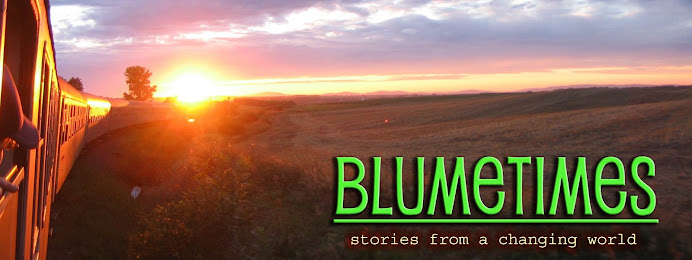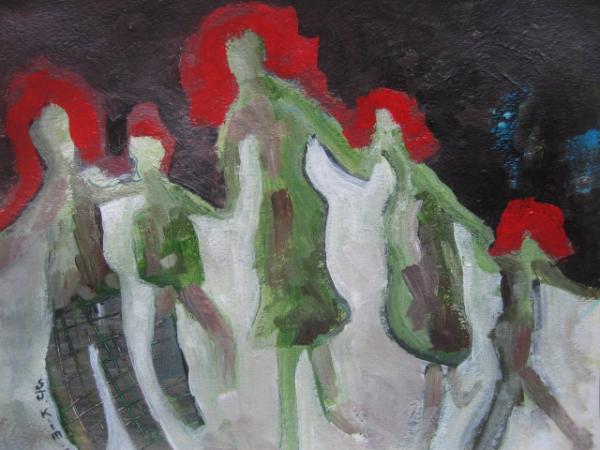
My parents were no exception. While good at telling jokes, they weren't much for personal narrative. However, they did have a couple classic passions of their generation - folk music and liberal politics. They also loved Thanksgiving - a uniquely secular celebration which appealed to my father's die-hard atheism and his great love of a good dinner party.
One small bit of family lore I do know is that my maternal grandfather, Jack Soifer, was an OBGYN in Brooklyn. Grampa Jack specialized in delivering babies for lefty Jewish intellectuals, and his most famous catch was Arlo Guthrie.
My Mom and Grandmother have always considered Arlo an honorary member of the family.
So, of course, a big part of Thanksgiving in my house was the ritual of playing Alice's Restaurant. I heard it so many times that I know the whole thing by heart. Not just the words, but every cadence, every inflection, every little quirk of Arlo's delivery:
"Yes, sir, Officer Obie, I cannot tell a lie, I put that envelope under that garbage."
The odd thing, though, is that my lefty-politico parents never actually explained what Arlo was talking about in the second half of the song - the whole business about him trying to avoid the draft and not get sent to Vietnam.
So while that part didn't make a whole lot of sense to my young, impressionable self, I did get the distinct idea that it's good to be a smart-mouthed trouble-maker if there's something out there you object to.
More than that, I completely absorbed the concept of using the arts as a legitimate form of protest. Arlo says it himself: "If you wanna end war and stuff, you gotta sing loud." And I believed him.
I also believed him when he said, "Can you imagine fifty people a day, I said fifty people a day walkin' in, singin' a bar of Alice's Restaurant, and walkin' out. Friends they may think it's a movement. And that's what it is."
I believe that with all my heart. This is how we change the world. It doesn't take much. Fifty dedicated people, a bar of a good song, four part harmony, and feeling.
Happy Thanksgiving.







